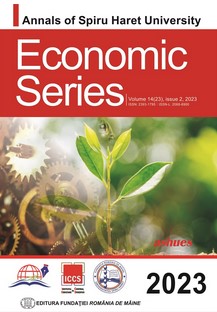PERFORMANCE ENHANCEMENT OF OCCUPATIONAL SAFETY AND HEALTH IN NIGERIA'S MANUFACTURING SECTOR THROUGH EFFECTIVE GOVERNMENT SAFETY LEADERSHIP
PERFORMANCE ENHANCEMENT OF OCCUPATIONAL SAFETY AND HEALTH IN NIGERIA'S MANUFACTURING SECTOR THROUGH EFFECTIVE GOVERNMENT SAFETY LEADERSHIP
Author(s): Bolatiwa Adunni Olokede, Wilfred Isioma UkpereSubject(s): Business Economy / Management, Security and defense, Human Resources in Economy
Published by: Editura Fundaţiei România de Mâine
Keywords: Occupational safety and health; performance; government safety transformational leadership; HR practices; safety climate; safety behaviour;
Summary/Abstract: The manufacturing sectors in Nigeria may have benefited from a symbiotic relationship with governmental regulatory bodies due to their profit-driven intentions as well as their crucial contributions towards job creation, poverty eradication, and social and fiscal obligations. Such a connection puts the workers at risk and may jeopardise the government's ability to fulfil its statutory supervisory obligations. To close this knowledge gap, the performance enhancement of OSH through effective government safety leadership is investigated. The present investigation utilised a mixed-methods research design, integrating both qualitative and quantitative research methodologies through a fixed explanatory sequential QUAN-dominant mixed-method strategy to examine perceptions of the three key major stakeholders regarding existing safety measures in the manufacturing industry, their efficacy, and possible interventions to enhance their applicability to revitalize OHS practises. A cross-sectional research design was adopted in collecting data from both registered (196, with three participants drawn from each, representing about 56% of the total population of 353) and non-registered (15) workplaces located in the cities of three Nigerian states, totalling 633 required participants. This work employed a combination of simple random and convenience sampling methods to determine the desired sample size. A total of 800 semi-structured questionnaires were distributed to mitigate the possibility of non-response bias among the respondents. The blue-collar workers constituted the unit of analysis for this phase. Findings indicate that the influence of government safety leadership (SL) is not supported in the safety performance behaviours of both employees and employers in the Nigerian manufacturing industry. Thus, the appropriate utilisation of transformation safety leadership could be a viable means of enhancing OSH performance in the manufacturing sector.
Journal: Annals of Spiru Haret University. Economic Series
- Issue Year: 23/2023
- Issue No: 3
- Page Range: 249-285
- Page Count: 37
- Language: English

